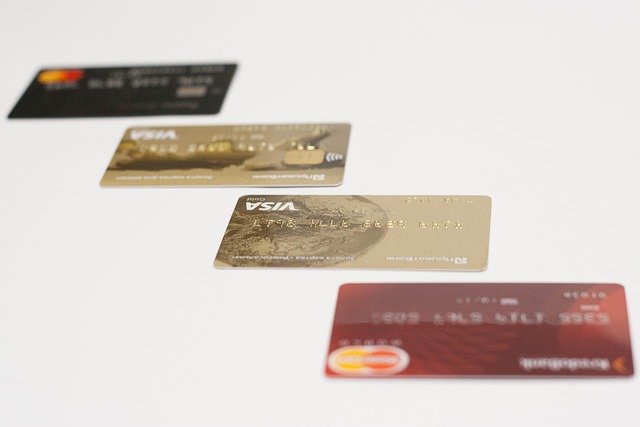Best Credit Cards for Beginners in the USA: How to Start Smart in 2026
Starting out with credit cards can feel like navigating new territory—but with the right approach, a credit card can be a way to build credit, develop money management skills, and open opportunities for future loans or housing applications. This guide will help you understand how to choose your first card, what features to look for, and how to use it responsibly to set yourself up for future financial health.

Starting your credit journey requires careful consideration of various card options designed specifically for those with limited or no credit history. Understanding how credit cards work, their associated costs, and potential benefits helps you make informed decisions that support long-term financial goals.
Understanding Credit Card Benefits for New Users
Credit cards provide numerous advantages beyond simple purchasing power. Building credit history stands as the primary benefit for beginners, as consistent, responsible use demonstrates creditworthiness to future lenders. Many cards offer fraud protection, purchase protection, and extended warranties that cash transactions cannot provide. Rewards programs allow you to earn cash back, points, or miles on everyday purchases, effectively providing value back on necessary spending.
Additionally, credit cards offer convenience and security for online purchases, travel bookings, and emergency situations. The ability to dispute charges and receive temporary credit during investigations provides consumer protection that debit cards often lack.
Key Insights for First-Time Credit Card Applicants
Successful credit card applications require understanding what lenders evaluate. Credit scores, income, employment history, and existing debt all influence approval decisions. Beginners often benefit from secured credit cards, which require a security deposit that typically becomes your credit limit. These cards function identically to traditional credit cards while minimizing lender risk.
Student credit cards offer another entry point, designed specifically for college students with limited income and credit history. These cards often feature lower credit limits and educational resources to help develop responsible credit habits.
Understanding Credit Card Costs and Fees
Credit cards involve various costs that beginners must understand to avoid unnecessary expenses. Annual fees range from zero to several hundred dollars, depending on card benefits and rewards programs. Interest rates, expressed as Annual Percentage Rates (APR), apply to carried balances and can significantly impact costs if you don’t pay the full balance monthly.
Late payment fees, over-limit fees, foreign transaction fees, and cash advance fees represent additional costs that careful management can avoid. Understanding these fees helps you choose cards that align with your spending habits and financial discipline.
Available Credit Card Options in Your Area
Major financial institutions offer credit cards accessible throughout the United States, with many providing online applications and instant decisions. Local credit unions often provide competitive rates and personalized service for members. Community banks may offer more flexible approval criteria for local residents with established banking relationships.
Online-only banks and fintech companies have expanded credit card offerings, often featuring innovative rewards programs and mobile-first experiences that appeal to younger consumers.
| Card Type | Provider Example | Key Features | Estimated APR Range |
|---|---|---|---|
| Secured Card | Capital One Secured | No annual fee, graduation potential | 26.99% - 29.99% |
| Student Card | Discover Student | Cash back rewards, no annual fee | 18.24% - 27.24% |
| Starter Card | Petal 2 | No fees, cash back | 14.24% - 25.24% |
| Store Card | Target RedCard | 5% discount at Target | 22.90% - 29.90% |
Prices, rates, or cost estimates mentioned in this article are based on the latest available information but may change over time. Independent research is advised before making financial decisions.
Building Credit Responsibly with Your First Card
Establishing positive credit habits from the beginning sets the foundation for future financial opportunities. Paying the full statement balance by the due date avoids interest charges and demonstrates responsible credit management. Keeping credit utilization below 30% of your available limit, ideally under 10%, positively impacts your credit score.
Setting up automatic payments ensures you never miss due dates, while monitoring your account regularly helps identify unauthorized charges quickly. Many card issuers provide free credit score tracking and educational resources to help beginners understand credit building.
Maximizing Rewards and Benefits as a Beginner
Even starter credit cards often include rewards programs that provide value on everyday purchases. Cash back cards offer straightforward rewards, typically 1-2% on all purchases or higher rates on specific categories like groceries or gas. Points-based programs may provide more flexibility but require understanding redemption options to maximize value.
Taking advantage of sign-up bonuses can provide immediate value, though meeting spending requirements should align with your normal budget rather than encouraging overspending. Many cards offer additional benefits like purchase protection, extended warranties, and fraud monitoring that provide value beyond rewards.
Starting your credit journey with the right card and responsible habits creates opportunities for better financial products in the future. Focus on building positive credit history, understanding costs, and choosing cards that match your spending patterns and financial goals. As your credit improves, you’ll qualify for cards with better rates, higher limits, and more valuable rewards programs.




